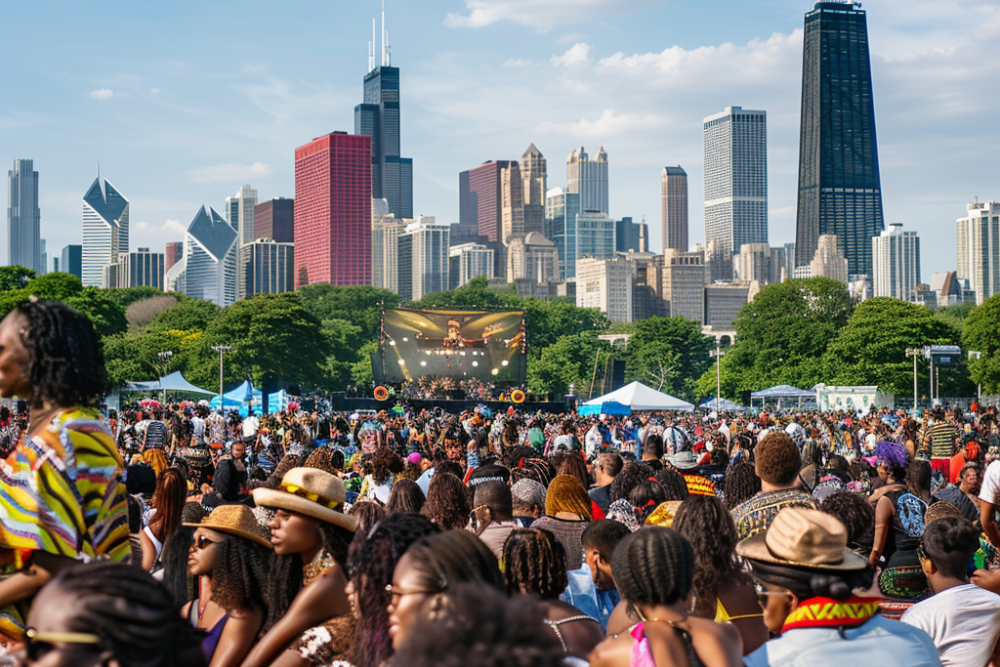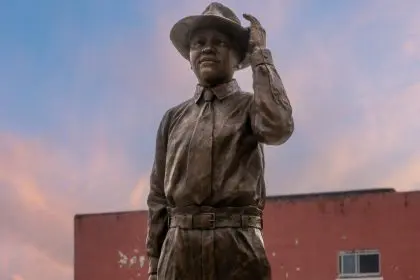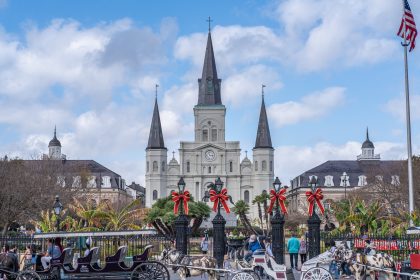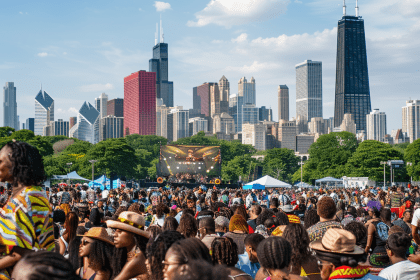Every year on June 19th, America celebrates a second independence day that most people learned about far too late in their lives. Juneteenth represents one of the most powerful and heartbreaking stories in American history, revealing the painful gap between when freedom was declared and when it actually arrived for the people who needed it most.
The story behind Juneteenth exposes uncomfortable truths about how slowly change can happen even after laws are passed and proclamations are signed. It took over two years for news of the Emancipation Proclamation to reach enslaved people in Texas, creating a delay that cost thousands of people precious years of their lives in bondage that should have already ended.
This year, Juneteenth falls on Thursday, June 19, 2025, marking another opportunity for Americans to reckon with this complex history while celebrating the resilience and joy of people who transformed devastating delays into powerful celebrations of freedom. Understanding what Juneteenth really represents changes how you think about independence, justice, and the long struggle to make American ideals reality for everyone.
The independence day that took 160 years to recognize
Juneteenth has been celebrated by African American communities since 1865, making it the longest-running African American holiday in the United States. Yet it only became a federal holiday in 2021, revealing how long it took for the broader American culture to acknowledge and honor this crucial piece of national history.
The holiday celebrates June 19, 1865, when federal soldiers finally arrived in Galveston, Texas, to enforce the Emancipation Proclamation and ensure that enslaved people were actually freed. The name Juneteenth comes from the combination of June and nineteenth, coined by the newly freed people of Texas who understood they were witnessing a historic moment that deserved its own special designation.
What makes this story particularly striking is the timeline involved. President Abraham Lincoln issued the Emancipation Proclamation on January 1, 1863, but it took until June 19, 1865, for that freedom to reach some of the most remote areas where slavery persisted. That’s two and a half years of continued bondage after freedom had been legally declared.
The delay wasn’t just bureaucratic inefficiency, it reflected the reality that legal declarations mean nothing without enforcement mechanisms and the political will to ensure compliance. Enslaved people in Texas had to wait for Union troops to physically arrive and take control before their legal freedom became actual freedom.
Why it took so long for freedom to travel
The gap between the Emancipation Proclamation and its enforcement in Texas reveals how complicated the relationship between law and reality can be, especially during times of conflict and social upheaval. The proclamation only applied to states that had seceded during the Civil War, leaving slavery intact in Union states that had remained loyal, creating a patchwork of freedom that depended on geography and politics.
Even in states where slavery was legally ended, the proclamation could only be enforced in areas under Union military control. Texas was one of the most remote areas of the Confederacy, making it difficult for federal authorities to monitor compliance or ensure that enslaved people were informed about their legal status.
The communication challenges of the 1860s meant that news traveled slowly under the best circumstances, and slave owners had obvious incentives to prevent information about emancipation from reaching the people they held in bondage. Some historians believe that many enslaved people in Texas were kept uninformed about their legal freedom for months or even years after the proclamation was issued.
The arrival of federal troops in Galveston represented more than just military occupation, it was the moment when legal freedom finally became enforceable reality for thousands of people who had been waiting for news that would change their lives forever.
The celebration that emerged from delayed justice
What’s remarkable about Juneteenth is how it transformed a story of delayed justice into a celebration of resilience, community, and ultimate triumph. Instead of focusing solely on the injustice of the delay, the newly freed people of Texas created a holiday that emphasized joy, family, community gathering, and the power of persistence in the face of adversity.
The first Juneteenth celebrations featured elements that continue to define the holiday today, including family reunions, community feasts, spiritual services, and educational activities that help pass down the story to new generations. These celebrations served multiple purposes, honoring the past while building community connections and cultural identity.
The holiday also became a way for African American communities to assert their own narrative about American history and independence, creating space for stories and perspectives that weren’t being acknowledged in mainstream historical accounts. Juneteenth celebrations preserved important cultural memory during periods when these stories were being ignored or suppressed by dominant historical narratives.
The persistence of Juneteenth celebrations across generations, even without official recognition, demonstrates the power of community-driven cultural preservation and the importance of creating your own celebrations when existing institutions fail to acknowledge your experiences and contributions.
The modern journey to federal recognition
The path from community celebration to federal holiday reveals how long it can take for marginalized perspectives to gain mainstream recognition and official acknowledgment. Juneteenth celebrations continued for over 150 years before the federal government recognized the holiday’s significance and made it part of the official national calendar.
The murder of George Floyd in 2020 sparked nationwide protests and conversations about racial justice that created political momentum for recognizing Juneteenth as a federal holiday. The connection between historical injustices and contemporary issues of police brutality and racial inequality helped more Americans understand why Juneteenth deserved federal recognition.
Senator Ed Markey first introduced legislation to make Juneteenth a federal holiday in 2020, but it took until 2021 for the bill to gain enough political support to pass through Congress and reach President Biden’s desk for signature. The timing reflects how social movements and political pressure can accelerate changes that might otherwise take much longer to achieve.
The relatively quick progression from bill introduction to federal holiday status demonstrates how powerful cultural moments can create opportunities for change that might not exist under normal political circumstances. The combination of social unrest, increased awareness of racial justice issues, and political leadership created conditions where Juneteenth recognition became possible.
What actually closes on Juneteenth
As a federal holiday, Juneteenth affects various services and institutions in ways that might impact your daily routine depending on what you need to accomplish on June 19th. Understanding what’s open and closed helps with planning while also reinforcing the significance of the holiday as an official day of national recognition.
Federal offices and post offices will be closed on Juneteenth, meaning no mail delivery for the day. This includes regular mail service, though some private delivery services like FedEx continue operating with modified schedules. The pause in federal services reflects the holiday’s official status and the government’s acknowledgment of its historical significance.
Most major banks will close for Juneteenth, including branches of Bank of America, Chase, Citibank, and other major financial institutions. While ATMs remain available, any transactions conducted during the holiday won’t be processed until the next business day. The Federal Reserve observes Juneteenth as a holiday, which influences banking industry practices even though individual banks aren’t required to close.
The New York Stock Exchange and other major financial markets will be closed on Juneteenth, affecting trading and financial transactions. This market closure reflects the holiday’s integration into the official federal calendar and its recognition as a day worthy of pausing normal business operations.
Why this matters beyond the day off
The federal recognition of Juneteenth represents more than just another day off work or school, it’s an acknowledgment that American independence is a more complex and ongoing story than the July 4th narrative typically suggests. The holiday forces conversations about whose freedom was celebrated when and whose independence took longer to achieve.
Juneteenth celebrations provide opportunities for education and reflection about aspects of American history that weren’t always emphasized in traditional historical accounts. The holiday creates space for stories about resistance, resilience, community building, and the long struggle to make constitutional principles apply to everyone rather than just privileged groups.
The timing of Juneteenth, coming just weeks before July 4th, creates natural opportunities to think about connections and contrasts between different independence stories within American history. This proximity encourages more nuanced understanding of American freedom as an evolving process rather than a single historical moment.
The holiday also represents victory for community-driven historical preservation and the power of grassroots cultural movements to eventually gain mainstream recognition. The journey from community celebration to federal holiday demonstrates how persistent advocacy and cultural organizing can create change even when official institutions are slow to respond.
The ongoing significance of delayed freedom
The story behind Juneteenth remains relevant because delays between policy declarations and actual implementation continue to affect people’s lives in contemporary America. The gap between legal rights and lived reality that defined the Juneteenth story appears in modern contexts involving civil rights enforcement, economic opportunities, and social justice initiatives.
Understanding how long it took for emancipation to reach Texas provides perspective on why social change often happens gradually rather than immediately after laws are passed or policies are announced. The Juneteenth story illustrates the difference between changing laws and changing systems, institutions, and cultures that implement those laws.
The holiday also celebrates the persistence and creativity of communities that created meaningful traditions and celebrations even when their experiences weren’t being acknowledged by mainstream institutions. This aspect of the Juneteenth story provides inspiration for contemporary movements working to gain recognition and create change.
The combination of celebration and education that characterizes Juneteenth offers a model for how communities can honor difficult histories while maintaining hope and working toward better futures. The holiday demonstrates how acknowledging painful truths about the past can coexist with celebration, joy, and community building.
The independence story that completes America
Juneteenth 2025 on June 19th provides another opportunity for Americans to engage with the fuller, more complex story of independence and freedom that includes the experiences of people who had to wait years for their legal rights to become actual reality. The holiday’s journey from community celebration to federal recognition reflects broader changes in how America tells its own story and whose experiences get included in official narratives.
The practical impacts of Juneteenth as a federal holiday, from closed banks to paused mail delivery, serve as annual reminders that this history matters enough to pause normal business operations and create space for reflection and education. These interruptions to routine activities reinforce the significance of June 19th as more than just historical curiosity.
Most importantly, Juneteenth represents the power of community persistence and the eventual recognition of stories that deserve to be part of America’s understanding of itself. The holiday proves that delayed justice can still become cause for celebration and that marginalized perspectives can eventually gain the recognition and honor they deserve.

















